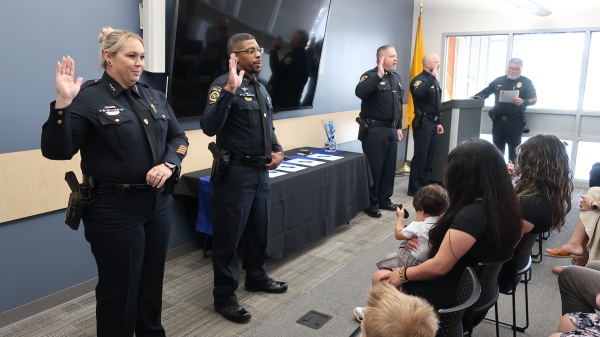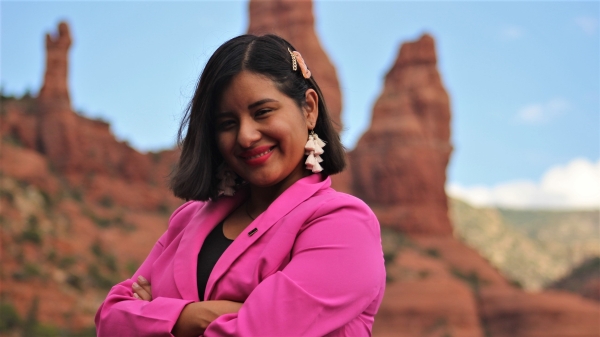Smithsonian archaeology curator kicks off ASU Research Computing Speaker Series
Data analysis adds new perspectives to archaeological research
The ASU Working Group for Research Computing is launching its Research Computing Speaker Series with a presentation by J. Daniel Rogers, curator of archaeology for the Smithsonian National Museum of Natural History’s Department of Anthropology.
The talk will be held at 2 p.m. Thursday, March 24, in the ASU Biodesign Institute Auditorium on the Tempe campus. ASU faculty, staff and students may register through https://researchacademy.asu.edu/events/2972; guests may register directly via email at researchcomputing@asu.edu.
The ongoing series will feature two to three speakers each semester from a variety of disciplines and will highlight the real-world applications of high performance computing.
Computing the Past
To make sense of a mysterious and complicated past, many archaeologists now employ sophisticated analytical tools in combination with traditional investigative methods. Dr. Rogers’ presentation will address the advances in computational capabilities, especially in agent-based modeling and network analysis, that have opened new paths for the study of social dynamics and have sparked a shift in theoretical developments. As archaeology engages with the cyber research future the challenges of massive data, generative methodologies, and computing capacity have taken on a new importance.
Rogers received a PhD in Anthropology from the University of Chicago. Throughout his career, he has conducted field research in the American Southwest and Great Plains, the Caribbean, Mexico, Peru and eastern Asia. Since 2002, he has studied the early empires of Inner Asia and developed computational models to analyze the social implications of climate change. His research topics also include the role of colonialism, culture contact, and emerging social complexity.
The Research Computing Working Group considers and recommends resources, policies, plans, and capabilities that affect faculty research computing and scholarly activities.
ASU Research Computing represents leading academic supercomputing capabilities — providing a high-performance computing environment, a high-end data intensive ecosystem (Big Data), a highly available 100 gigabit Internet2 connected network internal and external via Internet2 through an ESNET Science DMZ, large-scale data storage and elastic capacity to the public cloud.
Its mission is to eliminate boundaries to research computing by providing transformative advanced computing solutions in a cost-effective manner and to support the university’s mission and goals as they apply to research, education and public service.
For additional information, contact Marisa Brazil, program manager, ASU Research Computing, 480-727-0536.
More University news

ASU Police Department announces new assistant chief of police, promotions
Arizona State University Police Chief Michael Thompson announced the promotion of four veteran ASU Police Department officers…

ASU student wins Truman Scholarship to pursue public service career
An Arizona State University student who has spent years in service to her Mesa, Arizona, community has been named a Truman…

Sun Devil Athletics mourns the loss of Don 'Donze' Mullett
Don “Donze” Mullett supported Arizona State University’s hockey program since its club days in 2000 when his youngest son, Chris…